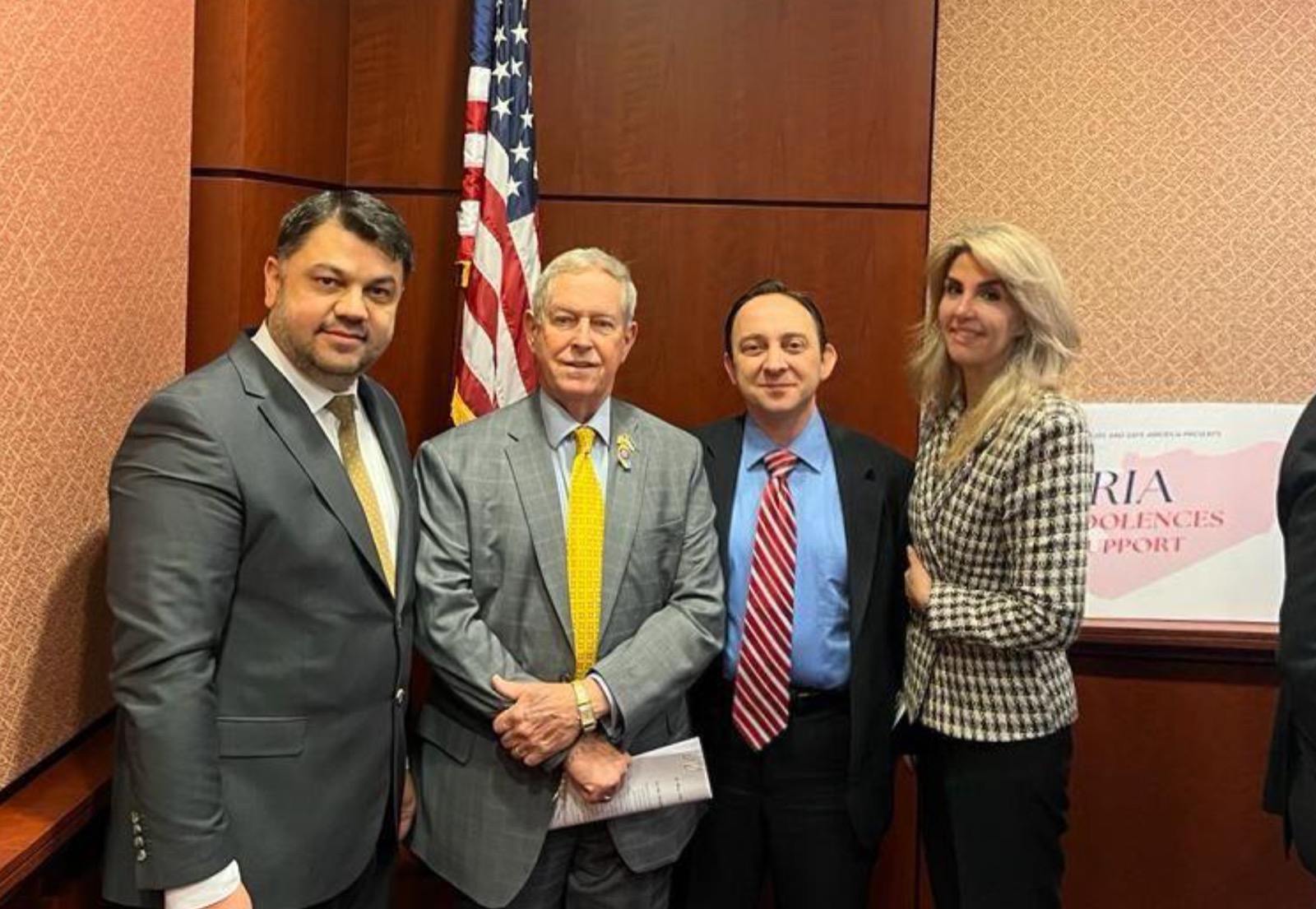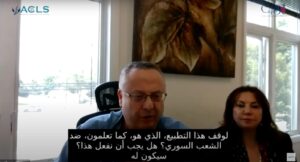“Global Justice Syria News” website conducted an interview with the head of the “Citizens for a Safe America” “C4SSA” organization, Dr. Muhammad Bakr Ghbeis, who dealt with several files, including the draft law to combat normalization with Assad, and the work of Syrian organizations in the United States.
In his speech, Ghbeis referred to the efforts made by the Syrian organizations in the United States to bring the draft to the House of Representatives, and the continuation of those efforts to complete the vote on it and then approve it.
Regarding the next steps for the draft law to combat normalization with Assad, Ghbeis explained that it is to bring the largest possible number of adopters of the decision in Congress, to ensure the largest possible number of votes, and then formally present the draft in the House of Representatives for a vote on it, and it is expected that this will happen within weeks.
Also, reference was made to the symposium sponsored by the “Citizens for a Safe America” “C4SSA” organization recently, and in which it hosted the US Representative, Joe Wilson, and the former US envoy to Syria, Joel Rayburn.
During the symposium, Wilson said that the Syrian-American community made a big difference by quickly developing the bill to combat normalization with Assad and passing it to Congress. In turn, Rayburn said the United States is still a superpower and has all kinds of different tools which if used along with military and media tools, is a law enforcement tool.
A number of personalities participated in the symposium, including Dr. Haytham Albizem, President of Global Justice.
Albizem expressed his appreciation for the pressure exerted by the United States against normalization with the Syrian regime, and urged Arab countries not to reconcile with the murderous Assad.
Ghbeis said that during that symposium, thanks and appreciation were extended to Wilson and his team for the support they provided in making the draft resolution and submitting it to a vote. The symposium also came to discuss Wilson and learn about the importance of this decision and its evaluation compared to the major decisions previously taken by Congress, the difficulties it may face and its expectations for the next steps, and the things that can help the Syrian community to pass the decision.
As for the joint work of the Syrian-American organizations in the United States, Ghbeis said that it is an integrated, cooperative and coordinated work, and sometimes there is a difference in the views, methods of work and strategic priorities of each organization, but there is agreement on general policies and key points such as communication with decision-makers in the United States.
He pointed out that sometimes there is a disagreement in viewpoints, but this does not lead to estrangement, but rather to more consultation between the organizations, and perhaps the assistance of national political figures from outside the Syrian-American organizations, with the aim of bringing points of view closer, and cooperation to reach the most important goal.
Draft “Law Against Normalization with Assad”
The Foreign Relations Committee in the US House of Representatives voted in favor of the anti-normalization bill with Assad, last Tuesday, after making some amendments to it.
All members of the committee voted yes in favor of the draft, with the exception of one member who decided to withdraw from the session before the vote, because he objected to the procedural rules and not to the text of the draft. This was done by voice vote in the committee, and the amended decision was approved by Unanimous (unanimous approval).
The maximum speed given to the draft law is considered “rare”, as bills in Congress do not circulate in most cases until months after the date of their submission. However, the Republican and Democratic parties, with efforts from Syrian organizations, decided to send a firm message to the printers ahead of the Arab Summit in Jeddah.
The project was approved after negotiations between the two parties that lasted for several days, and ended with some amendments to it.
In order for this bill to become law, it must be voted on in the House of Representatives and have the support of more than half of the members, then it will be presented to the Senate for a vote, and if approved, it will be referred to the US President for signature.























